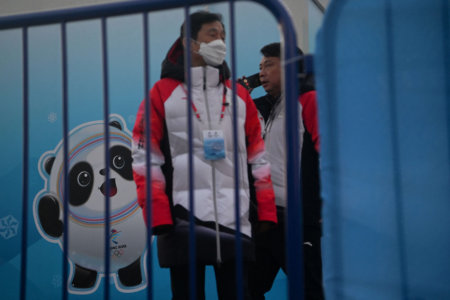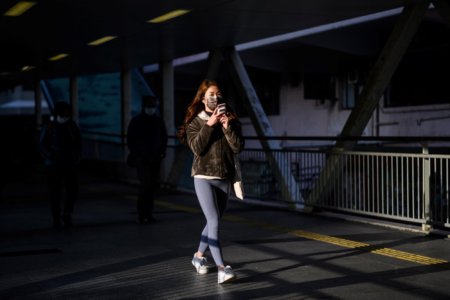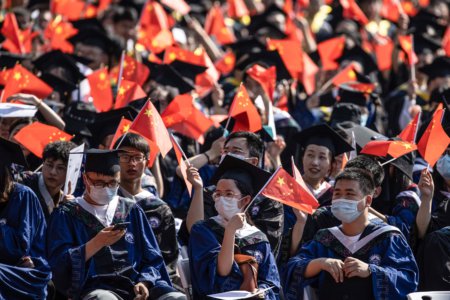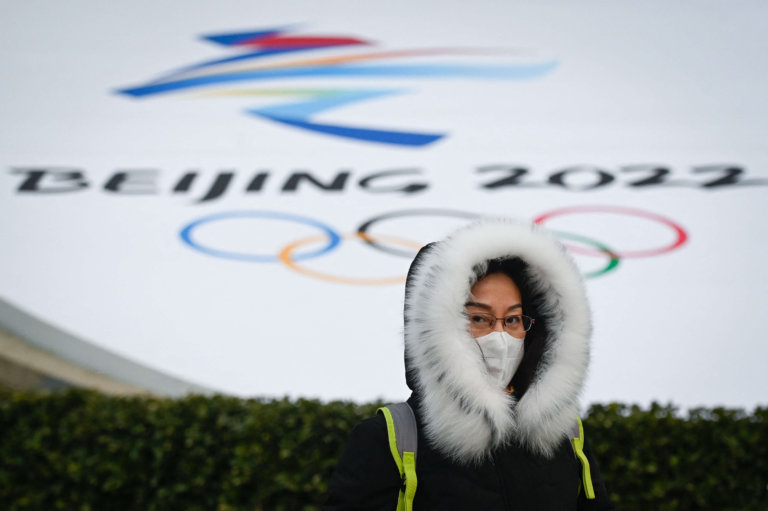
The Winter Olympics is only two weeks away, and Beijing faces a dire threat.
Reports of surging coronavirus spread in the Chinese capital spark concerns as both Delta and Omicron variants converge ahead of the highly-guarded sporting event. Beijing’s first Omicron patients have transmitted the variant to at least two contacts, and a separate case of a person who tested preliminary positive for Delta emerged in a different part of the capital, Bloomberg reports.
Earlier this month, the country’s first local transmission was detected in the neighbouring city of Tianjin, just 130 kilometres southeast of Beijing. Despite aggressive efforts to contain the virus from incurring into the capital city, the new outbreak calls into question China’s efficacy in its hardline strategy when other countries are striving to adjust to living alongside the virus.
“Now Beijing’s epidemic prevention and control work faces the double risk of overseas and domestic cases,” Pang Xinghuo, the deputy director of the Beijing Municipal Centre for Disease Prevention and Control, was quoted saying at a press conference.
Public health experts say the new variant poses the biggest threat to the country’s zero-COVID strategy, according to The Guardian. All inbound passengers into Beijing must get an additional COVID-19 test within 72 hours of arrival starting on Jan. 22, 2022.
The new mandate came in addition to an earlier requirement for travellers to be COVID-free within two days of travelling into Beijing, and a green health code to verify that they haven’t been in high-risk environments.
Beijing Winter Olympics: Dimming prospects for international students’ swift return?
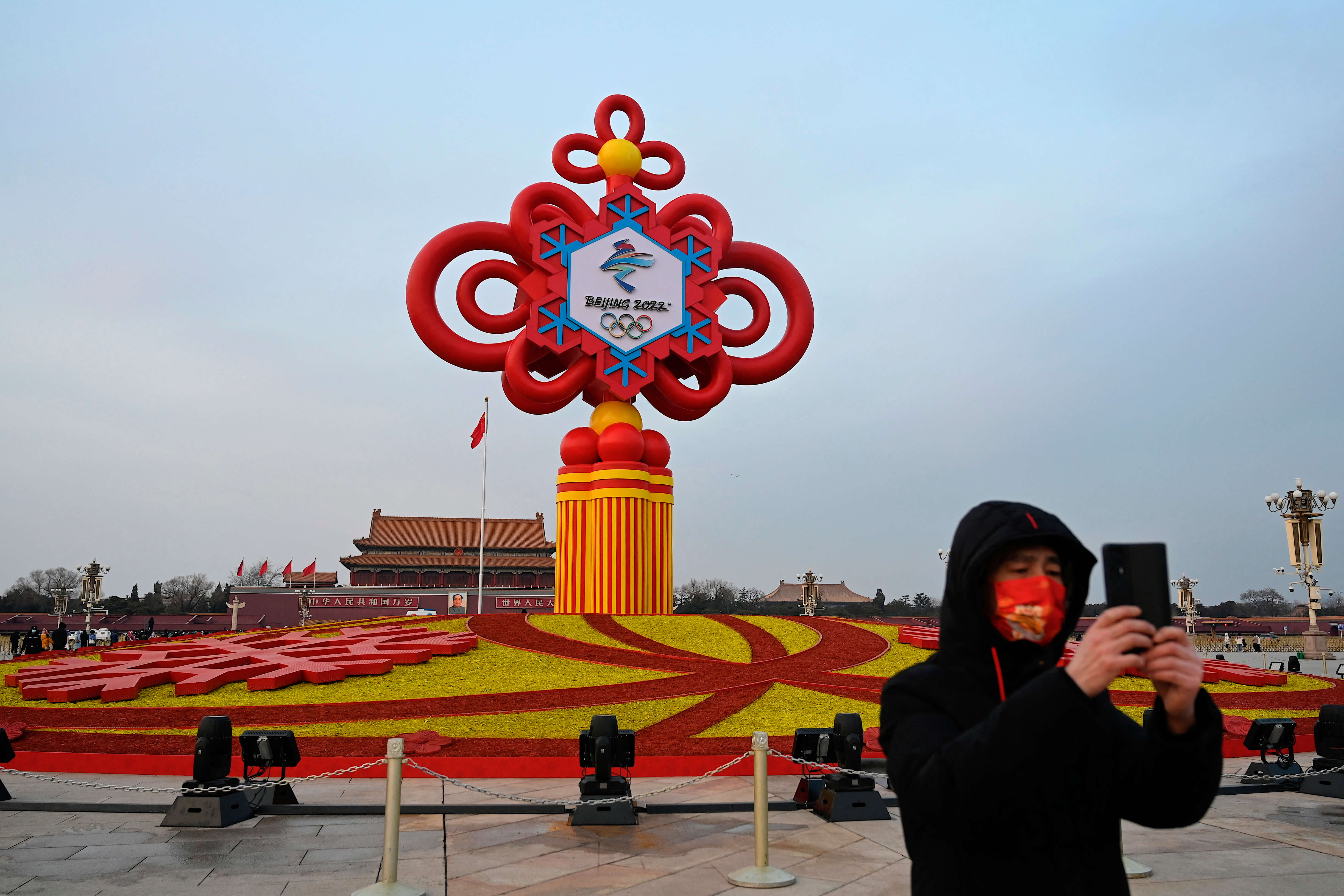
China’s new Omicron cases have dimmed prospects for imminent border reopening. Source: Jade Gao/AFP
The upcoming Winter Olympics has spurred speculations about potential border relaxation after the “closed loop” sporting event wraps up. Omicron’s presence, however, might just bury any prospect of imminent border reopening in China.
In a video statement released last November, Zhong Nanshan, the country’s public face of COVID-19, mentioned that China’s strategy “will be maintained for a long time”, despite its costly toll. Omicron cases have also emerged in Shanghai and Shenzen, and local governments have advised against travelling ahead of the Lunar New Year.
International students have borne the bitter end of China’s border policy. Two years since the first outbreak was detected in Wuhan, foreign students have either been forced to stay within the country or left stranded offshore with no clear possibilities of return.
Still, the approaching Winter Olympics have revived some dampened spirits among foreign students in China. About 60 students from 16 countries took part in a friendly youth winter sports event held in Beijing on Jan. 16, 2022, organised by the China Center for International Communication Development, reports China Internet Information Center.
Local and international students gathered at a sports centre in the Shijingshan district to experience ice hockey, curling, and other winter sports. Lu Cairong, vice president of China International Communications Group (CICG) was quoted stating that the Games is both a sporting and cultural event enabling “multi-cultural communication and integration”. State-backed media has also highlighted international students’ volunteering efforts at the Games, running in contrast to dire situation faced by many who are still locked out of the country.
Even tropical nations are winter sports fans! With less than 20 days until #Beijing2022, international student volunteers are limbering up for the Winter Olympics https://t.co/0ILLpwakA7 pic.twitter.com/A4DBmvK8bE
— China Xinhua News (@XHNews) January 17, 2022
This is so sad. Why is China placing so much importance and effort on the olympics yet cannot even communicate with students about their plans for study?! #takeUsBackToChina #TakeUsBackToSchool #china
#StudentsLivesMatter @zlj517 @chenweihua @LiuXininBeijing @zhang_heqing https://t.co/yjRZBrQ5do— China International Student Union (@takeusbacktoCHN) March 5, 2021
International students have expressed outrage at China’s double standards for greenlighting the entry of foreign athletes and officials involved in the Games while keeping foreign students out. Hashtags such as #TakeUsBackToChina and #LetUsBacktoSchool have made rounds on Twitter, testifying to international students’ crusade to return to their campuses.
“It impacts a lot, [our] future is at stake, our precious time is flying, we are begging — please do something for us. We want to go back to China soon to get our degree on time. We are hopeless now. No jobs, no stipend, no degree,” a Pakistani student told Study International.
Separately, Reuters reported that China is looking into restoring international and domestic air travel from 2023 onwards in a new five-year development plan issued by the Civil Aviation Administration of China (CAAC).








